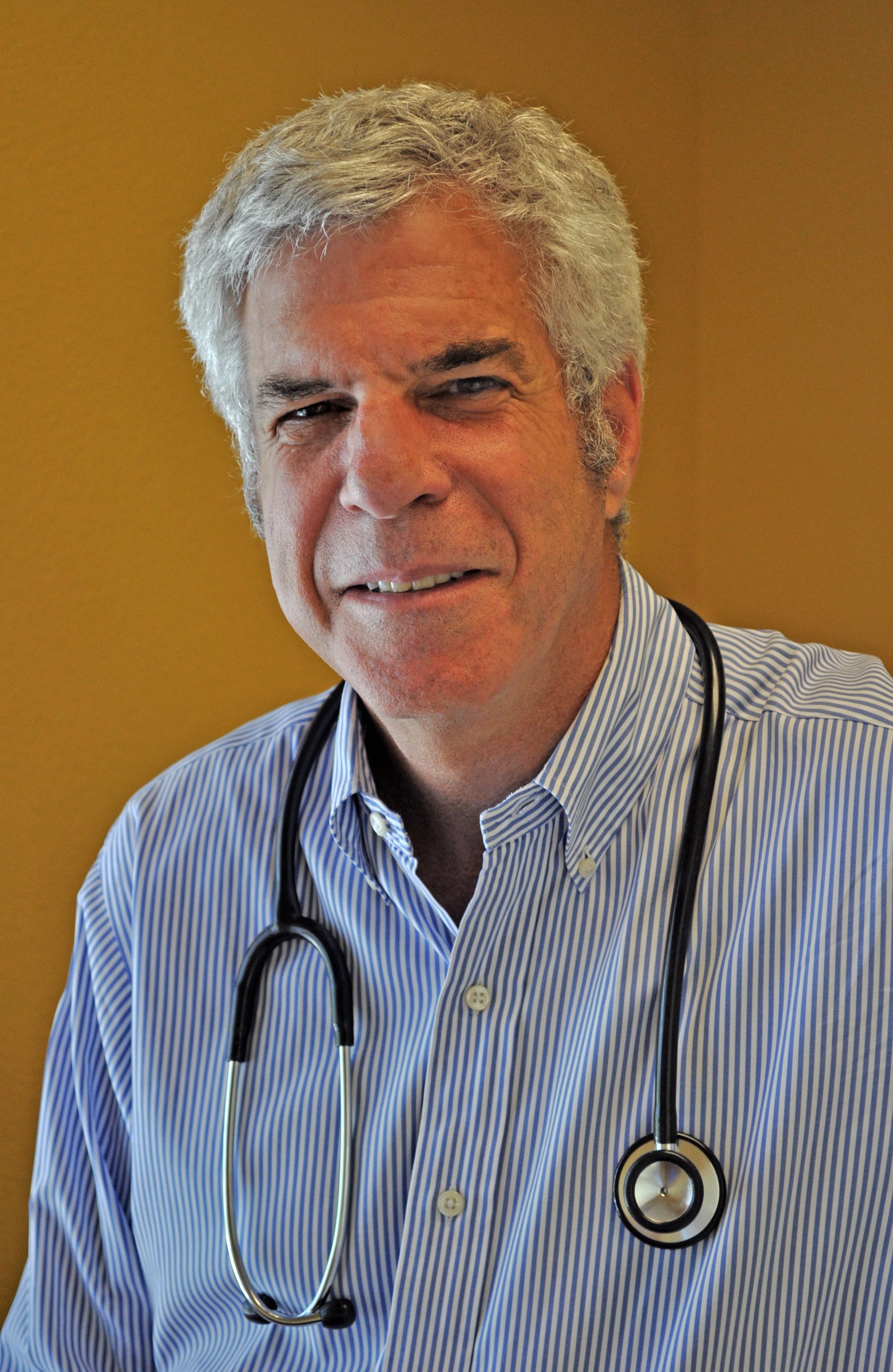
Title: The Coimbra Protocol-High-Dose Vitamin D in Autoimmunity
Plenary Speaker
Dr. William Clearfield
Clearfield Medical Clinic, USA
Abstract
An experimental, individualized therapeutic regimen utilizing high daily doses of Vitamin D3 (ranging from 40,000 to 300,000 IU/day), the Coimbra Protocol (CP is an integrative approach to a variety of treating autoimmune diseases. The Comibra Protocol is grounded in the hypothesis that genetic polymorphisms (e.g., VDR SNPs) and environmental factors cause an acquired vitamin D resistance compromising immune function.
High-dose Vitamin D3 functions as an immunomodulatory hormone, compensating for Vitamin D resistance to achieve enhanced Regulatory T cell (T-reg) activity while suppressing pathogenic Th17 cells.
Vitamin D3 dosing is titrated meticulously using Parathyroid Hormone (PTH) levels as the key biomarker, aiming for suppression into the lower third of the reference range. Observational data indicates reliable safety under strict physician supervision, provided the patient adheres to a low-calcium diet, high fluid intake (min. 2.5 L/day), and mandatory cofactor supplementation (e.g., Magnesium, K2, B2). The CP represents a promising, biologically plausible mechanism for achieving disease control and long-term remission.
Biography
William Clearfield, a 1978 graduate of the College of Osteopathic Medicine and Surgery, Des Moines, IA., completed a rotating internship and served as an OB/GYN resident at Metropolitan Hospital, Philadelphia, PA. Certified by the American Board of Family Medicine after completing a Family Practice resident in 1982 at United Health and Hospital Services in Kingston, PA, Dr. Clearfield, since 1982, is a leading figure in family and integrative medicine. With graduate expertise in areas ranging from Cardiac Rehabilitation (the University of Wisconsin/Lacrosse) to Medical Acupuncture (UCLA, 1991), to Age Management and Non-Surgical Aesthetic Medicine, (fellowship-trained and diplomat status from the American Academy of Anti-Aging Medicine,) Dr. C is a leading authority on cutting-edge medicine in Northern Nevada. In 2016, Dr. Clearfield’s turned when, after meeting with several veterans who suffered traumatic head injuries while serving overseas, recognized some of the long term maladies experienced by these soldiers were hormonal consequences of their TBI’s. Research led him to study with and be certified by the Millennium-Warrior Angel Foundation Trau matic Brain Injury Program. Dr. C’s lectures on Traumatic Brain Injury and Hormone Replacement in general, have taken him to OMED, the American Osteopathic Association’s Scientific Convention, NOMA, the Nevada Osteopathic Association, the American Osteopathic Society of Rheumatologic Disease, and the American Academy of Anti-Aging Medicine. Dr. Clearfield is the Nevada Delegate to the American Osteopathic Association’s House of Delegates and the Executive Director of the American Osteopathic Society of Rheumatologic Diseases.
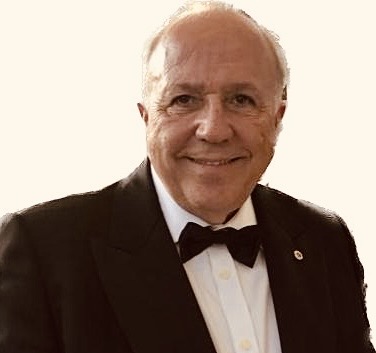
Title: Longevity: What’s Love Got to Do With It? A Multisystem Review of Emotional Bonding, Psychoneuroendocrine Regulation, and Biological Aging
Plenary Speaker
Dr. Steve John Chiola
Holos Academy
Switzerland
Abstract
Longevity research has traditionally centered on genetic determinants, metabolic processes, and lifestyle factors such as diet, exercise, and environmental risk exposure. However, emerging evidence indicates that emotional connection—conceptualized through constructs such as love, attachment security, relational trust, and social belonging—plays a measurable and causally relevant role in determining both lifespan and healthspan.
“What’s love got to do with it?” becomes not a rhetorical question but a legitimate scientific inquiry: Can love, or more specifically the physiology of safe emotional connection, alter the trajectory of human aging? This abstract presents a multidisciplinary synthesis across psychoneuroendocrinology, immunology, epigenetics, and cellular gerontology, proposing that love is not metaphorically but biologically implicated in processes that slow aging and extend life.
The physiology of love begins within the central nervous system, where interpersonal safety and emotional attunement activate oxytocinergic pathways centered in the hypothalamus. Oxytocin release has downstream effects on the hypothalamic–pituitary–adrenal (HPA) axis, including attenuation of corticotropin-releasing hormone (CRH) and adrenocorticotropic hormone (ACTH) signaling. The result is a reduction in chronic cortisol output—a hormonal pattern consistently linked with accelerated biological aging, mitochondrial exhaustion, insulin resistance, and neurodegenerative vulnerability. While cortisol is adaptive in acute threat responses, persistent elevation contributes to allostatic load and multisystem breakdown; thus, emotionally safe relationships serve not only psychosocial functions but also endocrine regulatory roles that moderate long-term risk.
This endocrine shift cascades into the immune and inflammatory domains. Chronic stress and social isolation elevate pro-inflammatory cytokines, particularly interleukin-6 (IL-6) and tumor necrosis factor-alpha (TNF-α), which are now understood as primary drivers of “inflammaging,” the low-grade inflammatory milieu that accelerates tissue decline and predicts morbidity. By contrast, social bonding increases parasympathetic tone—measurable through vagal activity—which suppresses excessive immune activation, reduces oxidative load, and supports immunological resilience. In this model, love operates as a regulator of immune expression, positioning relationships as an upstream variable in the maintenance of host defense and repair.
At the genomic and cellular level, emotional connection correlates with slower telomere attrition, improved telomerase activity, and reduced incidence of stress-induced DNA damage. Telomeres, the protective caps at chromosome ends, shorten with each cellular division; accelerated shortening is associated with morbidity, mortality, and age-related disorders. Individuals experiencing chronic relational threat—conflict, abandonment, isolation, attachment insecurity—demonstrate shorter telomeres and weaker telomerase response, while those reporting relational security show more favorable cellular aging profiles. Though causality remains under investigation, the association strengthens the hypothesis that emotional environments shape biological timekeeping.
In parallel, epigenetic research suggests that loving relationships may influence DNA methylation patterns linked to inflammatory regulation, stress responsivity, and neuroplasticity. Emotional safety appears to promote methylation states protective against chronic disease, while emotional neglect or isolation correlates with epigenetic patterns resembling physiological threat states. These findings imply that love functions not merely as a subjective experience but as an informational input that modulates gene expression over the lifespan.
Cognitive aging is similarly affected. Neurologically, love and secure attachment correlate with higher brain-derived neurotrophic factor (BDNF) levels, hippocampal preservation, and reduced glucocorticoid-induced neurotoxicity. These relationships suggest that supportive social environments act as neuroprotective factors, potentially delaying cognitive impairment and neurodegenerative progression. Conversely, loneliness is now recognized as a dementia risk factor comparable in magnitude to hypertension and smoking.
Collectively, these findings support a unified model: love—and its physiological correlates—affects aging through multisystem co-regulation. Emotional safety decreases threat physiology; decreased threat physiology reduces oxidative, inflammatory, and endocrine strain; reductions in strain slow cellular and cognitive aging. In this framework, the question is no longer “Does love matter?” but “Through which mechanisms, in which tissues, and over what timescales does it matter most?”
This presentation argues for the inclusion of relational health markers in longevity research and advocates that clinical prevention strategies integrate social connection metrics alongside traditional biomarkers. If love contributes measurably to increased healthspan, then public health models emphasizing community building, attachment literacy, and relational support become as biologically relevant as cardiovascular screening or nutritional counsel. Longevity, therefore, is not solely an outcome of genetic inheritance, caloric efficiency, or biomedical intervention; it is shaped continuously by how human beings co-regulate, bond, and belong.
In summary, what’s love got to do with longevity? According to current evidence: potentially everything. Love may not replace medicine, but it may be one of medicine’s most underestimated allies. This abstract proposes love as a biologically active component of healthy aging—an upstream determinant worthy of rigorous measurement, clinical application, and scientific respect.
Biography
Born and raised in the United States, after studying Medicine at the University of Genoa, I specialized in he graduated from Medicine & Health Sciences Founder, Educational Director and Professor of Holos Academy – Educational & Training Center (Switzerland) and President of the Swiss Clinical Aromatherapy Association (Switzerland) Consultant in Clinical Aromatherapy and Emotional Aromatheraoy for the Geriatric Center of the Luganese Hospital of Moncucco - Dr. Pio Eugenio Fontana and Geriatric Center at Felix Platter Hospital - Prof. Reto Kressig I worked as an assistant at Peking University during his specialization in Traditional Chinese Medicine and as an Associate Professor at the University of Siena where he taught Medical Informatics, Naturopathic Phlebolymhlogy and Vodder Technique.
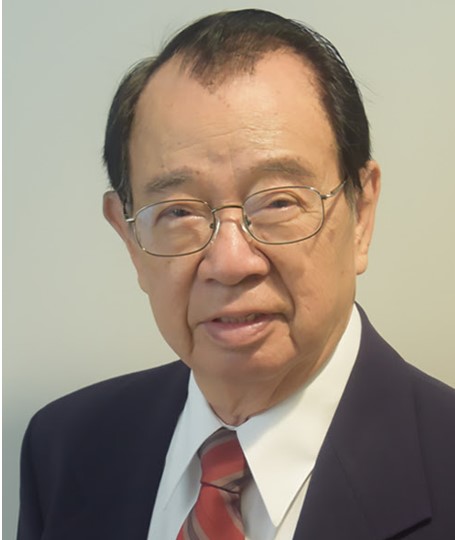
Title: From Fragmentation to Adaptation: The Emergence of Adaptive Medicine
Plenary Speaker
Dr. Kevin KF Ng
Former Associate Professor of Medicine, Division of Clinical Pharmacology, University of Miami
USA
Abstract
Despite extraordinary advances in modern medicine, chronic diseases such as diabetes, cardiovascular disorders, autoimmune conditions, and neurodegeneration continue to rise worldwide. This paradox reveals a fundamental limitation in the traditional, reductionist, organ-centered model of healthcare. While highly effective for acute and infectious diseases, this model struggles to address the complex, multifactorial nature of chronic illness.
Adaptive Medicine proposes a new framework based on the body’s inherent capacity to adjust, repair, and restore balance in response to physical, metabolic, and psychological stress. Human physiology evolved for survival in dynamic environments, relying on interconnected adaptive systems that regulate oxidative stress, inflammation, neuroendocrine function, energy metabolism, immunity, mitochondrial health, and vascular integrity.
Rather than viewing disease as an isolated defect, Adaptive Medicine reframes chronic illness as a state of maladaptation — a breakdown in the flexible, dynamic balance among these biological axes. Health, therefore, is not defined as the absence of stress, but as the capacity to adapt, recover, and maintain resilience.
This approach integrates pharmacology with targeted lifestyle and nutritional interventions, recognizing food, movement, sleep, and psychosocial environment as powerful biological signals. By restoring adaptive capacity rather than merely suppressing symptoms, Adaptive Medicine offers a unifying, preventive, and regenerative paradigm for the future of healthcare and public health.
Biography
Dr. Kevin KF Ng, a distinguished pharmacologist, made groundbreaking contributions to the field, including discovering the adrenergic neuron-blocking action of emetine and the angiotensin-converting enzyme (ACE) in the lung. He collaborated with Nobel Laureate Sir John R. Vane and developed an ACE inhibitor from snake venom. After a successful academic career, including over 150 clinical trials, Dr. Ng shifted his focus to "Food as Medicine," emphasizing phytochemicals and boswellic acids to complement traditional pain management
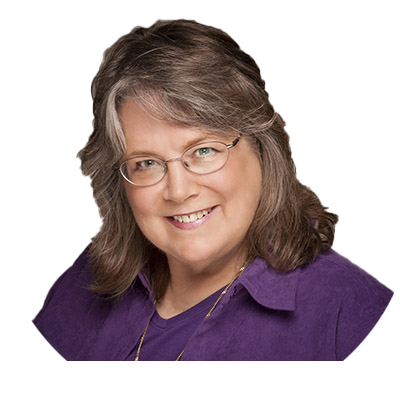
Title: Holistic Strategies for Neuropathy: Integrating TCM, Essential Oils, Lymphatic Support & Self-Care for Improved Nerve Function
Plenary Speaker
Dr. Beverly Lawrence
Bear Healing Center & Dancing Bear Enlightenment Academy,
USA
Abstract
Peripheral neuropathy arises from a wide spectrum of causes, including diabetes, chemotherapy, metabolic disorders, circulatory compromise, autoimmune conditions, and idiopathic factors. Yet many forms share common underlying patterns: inflammation, impaired microcirculation, metabolic stress, and altered nerve signaling. This presentation introduces a comprehensive holistic framework that integrates Traditional Chinese Medicine (TCM), Essential Oils, lymphatic support techniques, and practical self-care strategies to improve nerve function and reduce pain.
Drawing upon over fifteen years of clinical experience as a licensed acupuncturist and aromatherapy practitioner, this approach bridges Western pathophysiology with TCM concepts such as Qi and Blood stagnation, Damp accumulation, and organ system deficiency. Special attention is given to lymphatic stagnation as a contributing factor, recognizing its role in inflammatory waste buildup, microvascular impairment, and heightened nerve sensitivity, while emphasizing that neuropathy is inherently multifactorial.
Participants will learn an integrative protocol that includes:
- Essential Oils shown to support circulation, reduce neuroinflammation, and modulate pain pathways
- Targeted acupressure and meridian techniques to restore Qi flow and calm neuropathic signaling
- Lymphatic activation methods to enhance detoxification and reduce peripheral inflammation
- Evidence-informed self-care practices that improve mobility, sleep, and nervous system resilience
Biography
Beverly Lawrence, Ph.D., L.Ac. is a licensed acupuncturist, aromatherapist, and integrative medicine researcher with over fifteen years of clinical experience. She served as the primary investigator for a 2019 study examining scalar energy as a supportive modality for neuropathy; the findings were shared as a poster and online digital exhibit at a podiatry conference in 2020. Dr. Lawrence integrates Traditional Chinese Medicine, Essential Oils, lymphatic support, and somatic self-care to address complex neuropathic conditions. She is the founder of both the Dancing Bear Healing Center and the Dancing Bear Enlightenment Academy, where she teaches multidisciplinary approaches to healing, nervous system regulation, and holistic wellness. Her forthcoming book, The Neuropathy Healing System™, brings together ancient medical systems and contemporary scientific perspectives.
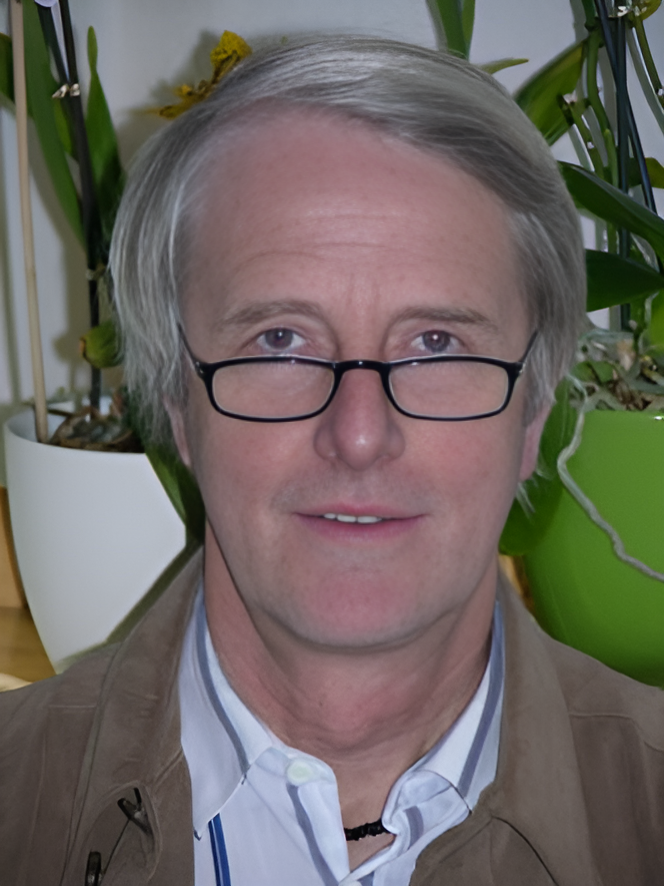
Title: Natural Remedies Against Covid-19 Virus and Long Covid Syndrome
Plenary Speaker
Dr. Manfred Doepp
Head of Holistic Center
Switzerland
Abstract
Natural remedies exist that are able to damage or even destroy viruses. Known are for example: Cystus-incanus (https://www.cystus-pandalis.de/graubehaarte-zistrose), the Capeland Pelargonium (Pelargonium sidoides, https://www.umckaloabo.de/de/umckaloabo-produkte) and CDL (Chlordioxid). A second problem are the spike proteins that occupy ACE-2 receptors in the organism, especially in the intima of the blood vessels, the heart (1, 2) and the brain (3). The mRNA from the vaccines mislead cell ribosomes to produce spike proteins for a long time. A third problem is the antibodies to mRNA that occur via shedding even in nonvaccinated individuals and cause autoaggressions, e.g. autoaggressive mitochondriopathy.
We have developed herbal mixtures against A) viruses, and B) spike proteins. A contains extracts from: Dandelion leaves, Citrus peels, Licorice roots, Pine needles, Pomegranate peels, and Red kitchen onions. These ingredients achieve the listed goals (see www.cellavita.de). For the Long Covid Syndrome (often Post Vac Syndrome), the autoaggressive processes are in the center. For this we have developed the so-called "Tria Mystica" (B), which contains as ingredients extracts of frankincense and myrrh as well as colloidal gold. Additionally Quercetin and Nattikinase should be applied.
In the case of myocardial or pericardial infestation (4, 5) by spike proteins, the most effective drug is Strophanthin (in the form of 3mg enteric-coated capsules, g-Strophanthin = Ouabain). If the brain is affected, Huperzine A (Lycopodium extract) and Methylene Blue have proven most effective. Additionally Ginkgo biloba 240mg should be applied. We have had very good experiences with those remedies.
Biography
Dr. of Nuclear Medicine (Germany), General Doctor (Switzerland), Expert in Energy Medicine Born in Bad Berleburg/Germany. Medical studies in Munich and Giessen, exams and doctorate in 1971. Scientific assistant at the clinical centre of the Justus Liebig University at Giessen until 1978. Senior physician for nuclear medicine at the clinical centre in Hanau/Germany until 1985. Founder of the "International Institute for Experiential Medicine" www.iifeh.de ; Founder of the "Diagnostic Centre for Mineral Analysis and Spectroscopy DCMS. From 2011 to 2018 Head Physician of the Quantisana Health Centre for Holistic Diagnostics and Therapy in Switzerland. Since 2018 Head of the HolisticCenter in Abtwil CH 9030. More than 400 oral and written publications in the fields of Integrative and Energy Medicine. Many videos on Youtube, Google and complementary portals. Reviewer of international journals. Co-founder and Deputy President of DGEIM (German Society for Energetic and Information Medicine, Stuttgart www.dgeim.de ).

Title: Core link Intelligence Integrating in Cranial Osteopathy with Medical Qigong
Keynote Speaker
Dr. Cloe Couturier
Cloecouturier.com
USA
Abstract
CranioSacralQigong represents an integrative process of cranial osteopathy and the ancient wisdom of Qigong, focusing on the profound relationship between cranial bone movement, primary respiratory motion, and Qi, the vitality of our core link intelligence. Rooted in the principles of cranial osteopathy, this practice emphasizes the subtle yet vital movements of the cranial bones that facilitate the flow of cerebrospinal fluid, essential for maintaining our neurological health.
At the heart of this integration is the concept of the dural tube, the external meningeal unit that encases the central nervous system. Understanding its structure and function enhances our awareness of the inherent Tides within our bodies—dynamic expressions of life that reflect our core link intelligence. Unlike manual therapies, CranioSacralQigong is a personal practice which teaches us to follow and modulate these intrinsic rhythms, unveiling our natural connection to the cosmic flow of Qi.
Through the practice of Qigong, we engage with the balance of Yin and Yang, alongside the central meridians, Ren and Du, which further amplifies our understanding of health and wellness. This conscious engagement fosters a deeper awareness of our physical and energetic selves, embedding the way to embody a self-regulatory life skill.
CranioSacralQigong invites practitioners to cultivate and develop this awareness, facilitating a profound connection to their core link intelligence and enhancing their overall well-being. As we explore these integrative pathways, we unlock the potential for greater health, vitality, and conscious living, enriching our journey toward holistic wellness.
This integration is based upon the movement of cranial bones and primary respiratory motion, followed by the understanding of the dural tube in the Craniosacral paradigm and then the Tides, and parallels with Qigong, the cosmic flow, and the central channels of yin and yang, REN and DU. This context elaborates on the consciousness of our core-link intelligence and how with qigong practice we develop and gain the ability to potentialize and activate this motion within ourselves, and how the CranioSacralQigong practice stems from this understanding.
Biography
Dr. Cloe Couturier, a medical Qigong doctor (China) and certified osteopath (France, UK), is an advanced certified medical Qigong instructor, a certified Integrative Qigong Practitioner, and Craniosacral Diplomate. Developer of CranioSacralQigong®, she’s a published author with over 30 years of clinical practice in Palm Beach County, Florida. Awarded “Medical Qigong Master 23 by World Congress Integrative Health. Cloecouturier.com the developer of craniosacralqigong.com
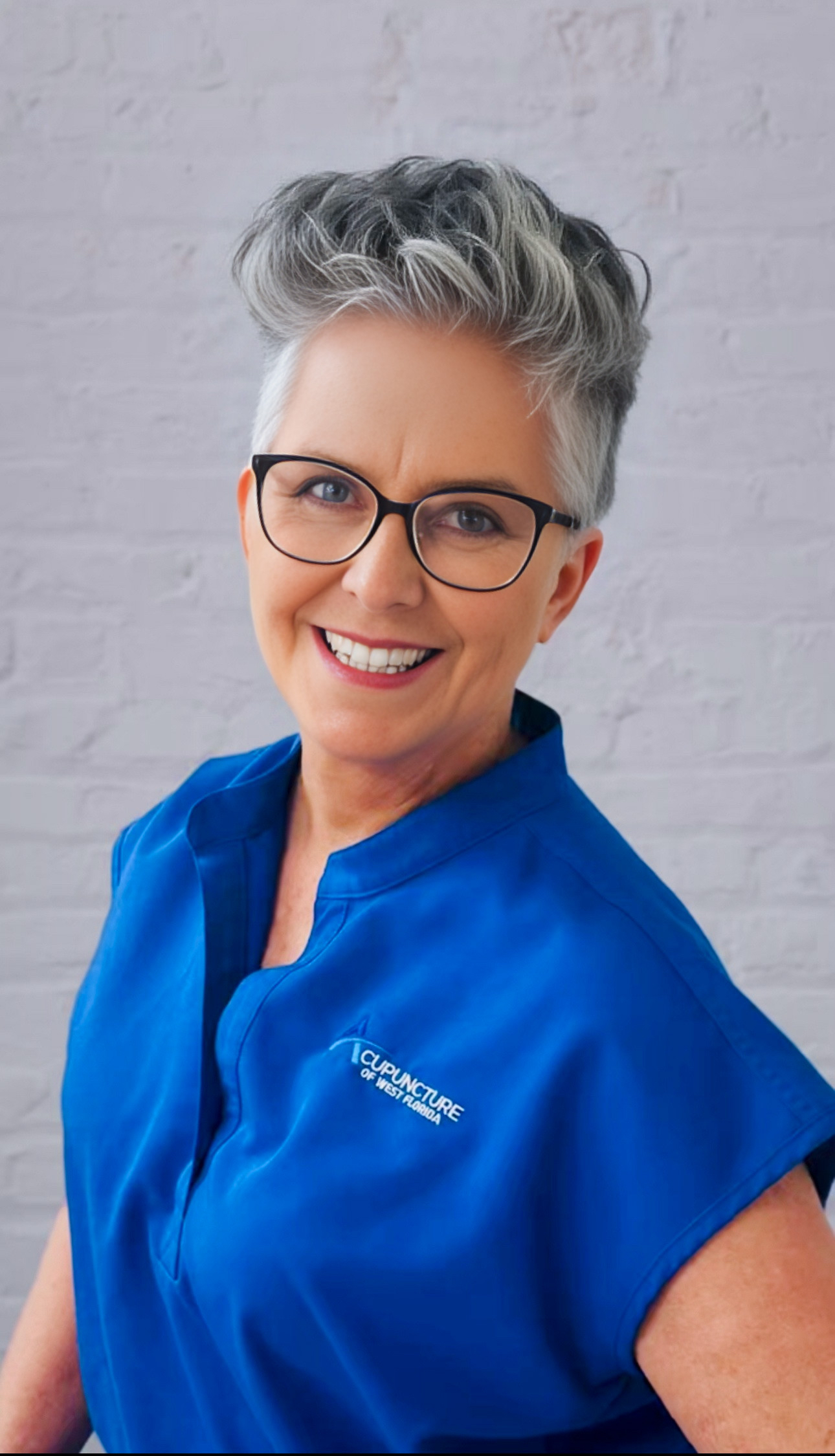
Title: Integrative Acupuncture Approaches for Neuropathic Pain, Chronic Pain, and Functional Neurological Conditions
Keynote Speaker
Dr. Kimberly Windschauer
Acupuncture of West Florida, Clearwater, Florida
USA
Abstract
Neuropathic pain, chronic pain syndromes, and functional neurological conditions represent a growing global health burden and remain challenging to manage with conventional medical approaches alone. These conditions are frequently associated with persistent pain, sensory disturbances, motor dysfunction, autonomic imbalance, and reduced quality of life. Pharmacologic treatments often provide incomplete relief and may be limited by side effects, highlighting the need for effective integrative strategies.
This presentation explores the role of integrative acupuncture in the management of neuropathic pain, chronic pain, and functional neurological conditions, drawing upon traditional acupuncture diagnostics alongside contemporary neurophysiological and integrative medicine frameworks. Key mechanisms discussed include neuromodulation of pain signaling, regulation of central sensitization, enhancement of microcirculation, reduction of neuroinflammatory processes, and autonomic nervous system regulation. Emphasis is placed on individualized treatment planning, pattern differentiation, and the application of neuro-acupuncture techniques to address both peripheral and centrally mediated symptoms.
Clinical observations from practice demonstrate improvements in pain intensity, sensory function, balance, motor coordination, and overall functional capacity among patients with both structurally defined and functional neurological presentations. This session aims to bridge traditional medicine principles with modern clinical practice, offering practical, patient-centered insights for healthcare providers seeking non-pharmacologic, integrative approaches to complex pain and neurological conditions. Integrative acupuncture represents a safe, adaptable, and clinically relevant modality that can be effectively incorporated alongside conventional care to support improved patient outcomes.
Biography
Kim Windschauer, DACM, L.Ac., is a licensed acupuncturist and Doctor of Acupuncture and Chinese Medicine specializing in integrative approaches to neuropathic pain, chronic pain, and functional neurological conditions. She is the founder of Acupuncture of West Florida, where her clinical work focuses on individualized, evidence-informed acupuncture protocols within a modern integrative healthcare setting. Dr. Windschauer has extensive experience treating complex pain conditions and collaborating within multidisciplinary care models.
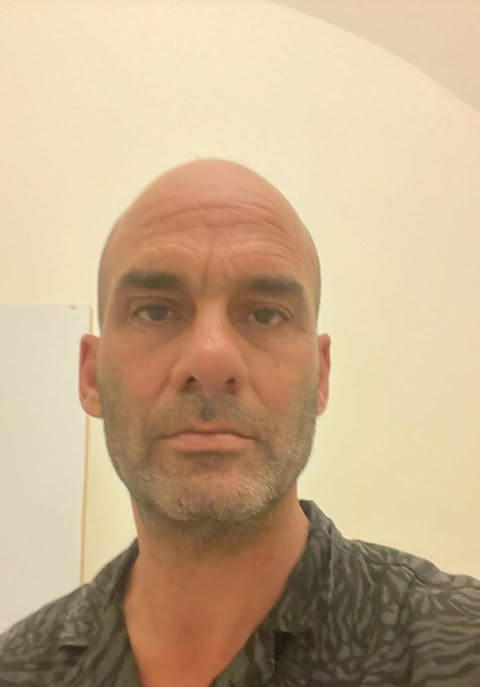
Title: Palpation-Based Japanese Medicine for Body–Mind Trauma and Autonomic Regulation
Keynote Speaker
Boaz Colodner
The Israel Organization of Health Preservation, Jerusalem
Israel
Abstract
Trauma and chronic stress are expressed through the body–mind system as persistent autonomic dysregulation, muscular tension and visceral disturbance. Japanese medicine developed a unique palpation-based diagnostic approach, originally refined by blind practitioners, allowing the body to be read directly through touch. In this proof-of-concept model, reproducible patterns of abnormal tenderness, tissue density and altered skin response are identified in viscerosomatic and meridian-related zones. These areas reflect stored stress and autonomic imbalance and serve as primary treatment targets. Using gentle touch and minimal Japanese acupuncture stimulation, these reactive zones are released. Across repeated clinical observations, reduction of local tissue sensitivity is consistently followed by emotional relief, slowed breathing, reduced heart rate and subjective calming of the nervous system. This demonstrates a direct functional link between somatic tissue reactivity and body–mind regulation. By further developing and refining such models, it may become possible to extend effective trauma care to a broader population in need.
Biography
Boaz Colodner has over 25 years of clinical experience in Japanese and Chinese medicine. He is the director of one of Jerusalem’s largest integrative treatment centers, combining Japanese acupuncture, manual therapy and movement-based rehabilitation. He teaches advanced continuing-education programs for practitioners, including a comprehensive Japanese medicine curriculum focused on palpatory diagnosis, polarity systems and body–mind regulation.
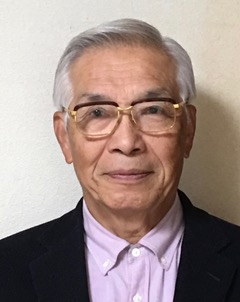
Title: Mitocondria and iodine open a new world of healthcare
Plenary Speaker
Prof. Shozo Yanagida
Emeritus Professor of Osaka University
Japan
Abstract
The cell theory, which states that disease is caused by the aging of cells, is a theory on the cause of disease that Pasteur, who advocated the bacterial theory in his later years, also accepted in his later years.
However, the facts related to health and medicine reported by medical scientists and pharmacologists are explained by events occurring within cells at micron sizes (one millionth of a meter) that can be observed with an optical microscope. Because the metabolic chemical and physical phenomena occurring within cells are primarily driven by molecules and ions smaller than nanometers (one billionth of a meter), healthcare cannot be properly explained unless they are understood as electron transfer phenomena between frontier orbitals of associated structures of molecular and ionic species. Molecular modeling using Spartan, a molecular modeling software based on density functional theory, verifies and explains the following three points.
Trace amounts of iodide ions at the ppm level found in sun-dried salt, seaweed, and seafood maintain the activity of mitochondria, the cell's engine, through their antioxidant properties. (2) Healthy mitochondria convert the instantaneously generated hydrated superoxide anion radicals [O2-* (H2O)2] into microwave, radio wave, and high-frequency electromagnetic energy, while the resulting far-infrared wave energy is converted into heat through thermal upconversion, driving metabolic chemical reactions within the cells. (3) Activating mitochondria with iodine fosters healthy cells in the nerves and brain, liver, kidneys, heart, pancreas, and gastrointestinal tract, contributing to health care. It is worth noting here that cellular aging is caused by the deterioration of mitochondrial structure. This deterioration of mitochondrial structure is caused by the destruction of the mitochondrial lipid bilayer membrane by hydrated hydroxyl radicals generated from superoxide anion radicals. Therefore, as we age, it is important to maintain lifestyle habits that suppress the generation of hydroxyl radicals. [HO* (H2O)2].
Biography
Shozo Yanagida (Emeritus Professor of Osaka University since 2004) is a pioneer of molecular-structured solar cells, and now stay at the forefront with regards to density functional theory-based quantum chemisty molecular modeling of molecular aggregats. Now, he may be regarded as a molecular-structure chemist using density-functional theory. He presented a plenary lecture entitled “Carbon dioxide is by no means the cause of climate change, and solar radio radiation causes climate change. Forecast/Verification by Quantum Chemistry Molecular Modeling in a global conference. Many theoretical verification examples by molecular modeling can be found on the homepage of M3 Laboratory Co., Ltd. (https://www.m3lab.en/).
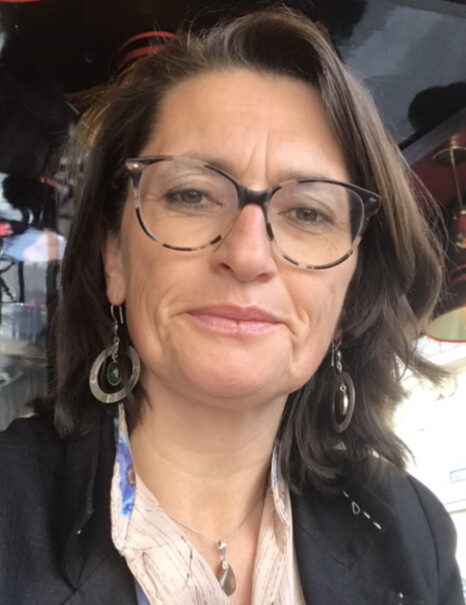
Title: Age-Related Macular Degeneration: A Growing Public Health Challenge and the Role of Acupuncture
Keynote Speaker
Dr. Diane van der Vliet
Age-Related Macular Degeneration: A Growing Public Health Challenge and the Role of Acupuncture
france
Abstract
Diane van der Vliet is a medical doctor specialised in acupuncture and auriculotherapy, with recognised expertise in the integrative management of age-related macular degeneration (AMD).
Age-related macular degeneration (AMD) is a leading cause of irreversible vision loss in older adults, with a rapidly increasing incidence in industrialised countries and limited therapeutic options, particularly for its dry form. As vision loss profoundly affects autonomy, quality of life and mental health, there is a growing need to explore integrative approaches that go beyond conventional ophthalmic care.
This presentation introduces AMD in accessible terms and reviews current evidence on acupuncture as a complementary strategy in its management. Published studies and meta-analyses suggest that acupuncture may improve visual function, reduce central macular thickness and enhance macular microcirculation. These data will be complemented by real-world clinical experience and the integration of auriculotherapy and the AcuNova (John Boel) eye acupuncture approach into an individualised treatment protocol.
In light of recently published international clinical practice guidelines recognising acupuncture among supportive interventions for AMD, this lecture highlights how integrative medicine can contribute meaningful, patient-centred options—particularly for dry AMD, for which no curative treatment currently exists. This session aims to provide auditors from diverse professional backgrounds with a clear, evidence-informed overview of why and how acupuncture may have a role in the integrative care of patients with macular degeneration.
Biography
Dr. Diane van der Vliet is a medical doctor and recognised expert in Acupuncture and Auricular Acupuncture, with a special focus on supportive care in oncology. Based in Lyon, France, she specialises in acupuncture and Chinese energetic techniques to help cancer patients manage treatment-related side effects and regain balance, energy, and quality of life. Dr van der Vliet has reinforced her expertise by a training in Clinical Oncology at the prestigious Gustave Roussy Institute in France. Her clinical expertise is enriched by a solid background in pharmaceutical research and global clinical trials, having served as Director of Clinical Development for over a decade. She has authored numerous scientific publications and regularly contributes to medical conferences and regulatory work. In addition to her clinical and scientific credentials, Dr van der Vliet is deeply committed to integrative, patient-centred care. She regularly leads group acupressure workshops at the Centre Ressource in Lyon, a supportive care centre for individuals living with or recovering from cancer. These workshops empower patients to use self-acupressure techniques to enhance vitality, reduce anxiety, and better manage common side effects of cancer treatments—promoting autonomy and well-being throughout the healing journey. At the 16ᵗʰ Global Webinar on Traditional and Integrative Medicine, Dr Van Der Vliet will share a comprehensive evidence-based review of acupuncture’s role in oncology supportive care, drawing on her dual expertise in Clinical Science and Acupuncture. Her work exemplifies the fusion of rigorous scientific inquiry with compassionate, integrative healing practices.
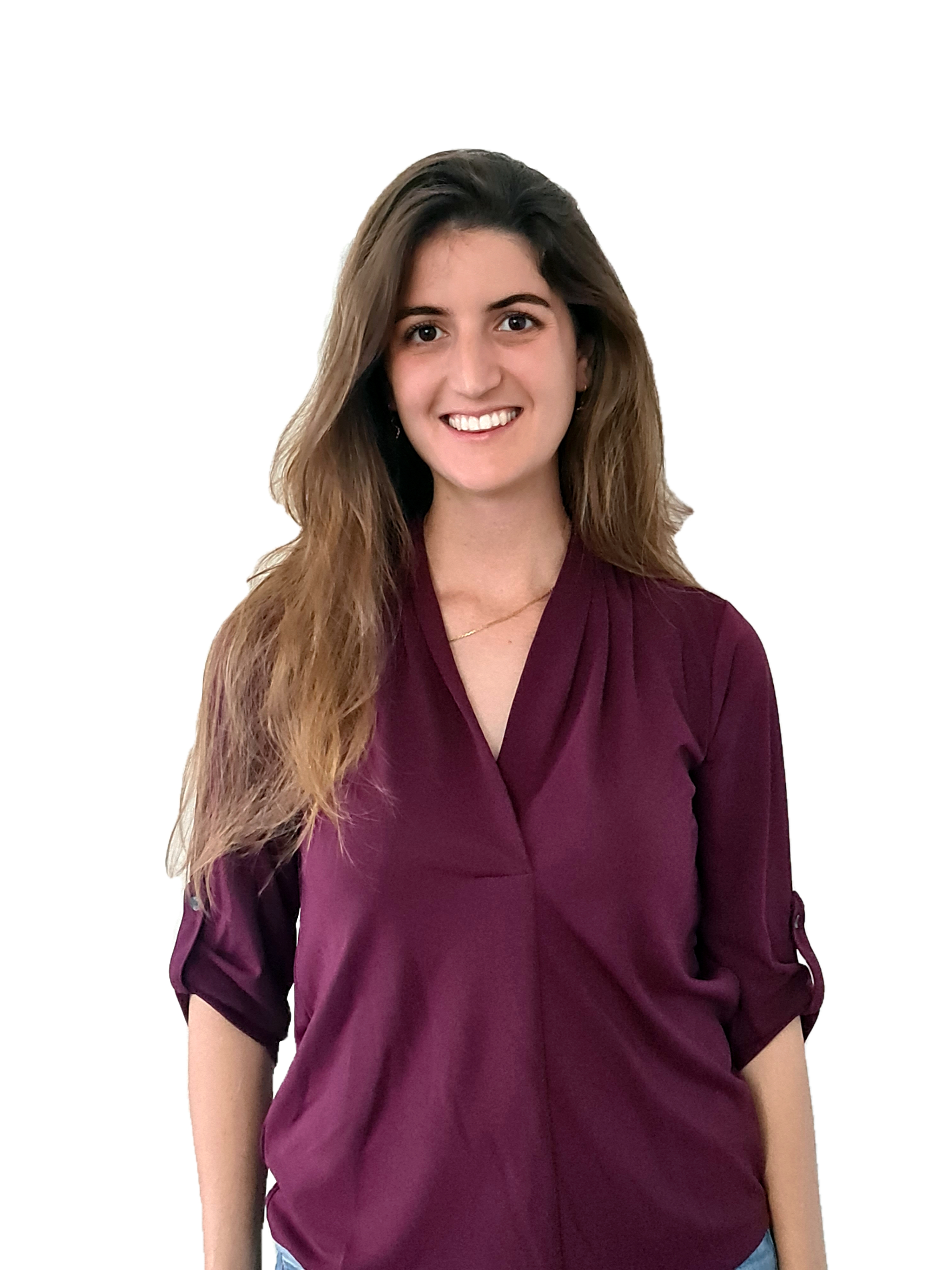
Title: AI-Generated Protein Combinations with High Biosimilarity: A Novel Approach to Addressing Gut Health and Inflammation
Speaker Presentation
Yuval Appelbaum
CTO, Maolac
Israel
Abstract
Chronic inflammation is a significant factor contributing to systemic complications and gut dysfunction. Protein combinations with high biosimilarity to human breast milk proteins offer a promising avenue for addressing inflammation and promoting gut health. The aim of this study was to evaluate the anti-inflammatory efficacy of an AI-generated combination of bio-functional proteins derived from bovine colostrum, and to investigate its potential for integration into functional nutrition applications.
Ex-vivo experiments were conducted using human peripheral blood mononuclear cells (PBMCs) activated by OKT3 to simulate inflammatory conditions. The protein combination’s effects on T-cell activation and INF-γ secretion were compared to colostrum powder, lactoferrin, and curcumin. The optimized protein combination demonstrated a significant reduction in T-cell activation (51%) and INF-γ secretion (14%), outperforming all comparators.
In-vivo efficacy was assessed using a delayed-type hypersensitivity (DTH) mouse model induced by oxazolone, where ear inflammation served as a measure of treatment effectiveness. Mice treated with the protein combination exhibited a 39% reduction in ear thickness after 48 hours, compared to 29% in untreated controls, indicating accelerated recovery. Pathological analysis further revealed a decrease in macrophage infiltration and epidermal thickness in treated groups, confirming the formulation's anti-inflammatory efficacy.
The study demonstrates that AI-generated protein combinations with high biosimilarity offer a robust solution for managing gut inflammation and promoting immune health. This formulation provides a promising foundation for developing functional nutrition products targeting chronic inflammation and gut health disorders.
Biography
Yuval Appelbaum is the CTO of Maolac, an Israeli FoodTech and biotech company specializing in advanced colostrum-derived functional ingredients for health, nutrition, and wellness applications. With a B.Sc. in Biotechnology Engineering, Yuval leads the company’s R&D, production scale-up, and engineering strategy, overseeing process development, production technologies, protein characterization, and quality systems. Driven by a passion for innovation, precision, and scientific excellence, Yuval works closely with global partners to bring clinically-supported bovine colostrum proteins to market while ensuring full compliance with FDA, EU, and Israeli regulatory standards. Beyond R&D, Yuval is deeply involved in patent strategies, product launches, and operational growth, contributing to Maolac’s expanding international presence.
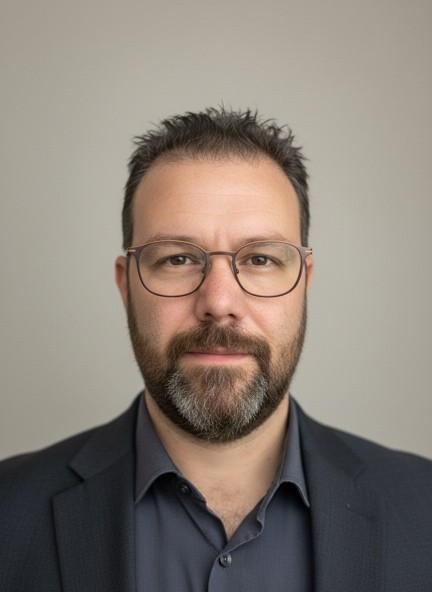
Title: Epigenetic mechanism for acupuncture
Keynote Speaker
Patrick Grassi
Acupuncturist, Anesthesia nurse, Expert for Swiss Naturopathy Federal Diplôme (TCM branch),
Switzerland
Abstract
Integrative medicine has long sought to heal the fragmentation inherent in modern biomedicine by viewing the person as an inseparable whole — body, mind, environment, and relationships woven together. Yet despite this holistic vision, clinical practice and research remain heavily anchored to what can be measured: biochemical markers, physiological parameters, behavioral scales. While these tools are undeniably valuable, they often fall short when confronting the deeper complexities of healing — the lived experience of illness, the therapeutic encounter, the subtle shifts that precede recovery.
The definition and introduction of non-measurable variables—such as perceptive, meaningful, relational, intuitive, or motivational aspects—represent a necessary extension of the theoretical, interpretive, and clinical framework across all disciplines. These dimensions, while eluding quantification, possess observable coherence and explanatory power within an evolving systemic and phenomenological approach. They shape outcomes, guide decisions, and influence the therapeutic process in ways that current scientific models cannot capture.
This work proposes defining and integrating non-measurable variables from physics to biology and finally clinical practice. Through concrete clinical examples and shared observations, we explore how these variables can form bridges between disciplines, create common theoretical ground, and enrich our understanding of what it means to care and to heal, opening a broader therapeutic horizon.
Biography
Patrick Grassi is a licensed acupuncturist, anaesthesia nurse, specialist in integrative health, and federal expert in TCM naturopathy (OdA AM, Swiss Confederation). With 20+ years of healthcare experience spanning emergency care, anaesthesia, traditional Chinese medicine, researches and treatments of emotional impacts on biology,… he uniquely bridges biomedical science with classical healing traditions. .
Founder of “Au Bout de l’Aiguille", a private practice integrating acupuncture, naturopathic consultation, and bio-emotional medicine, Patrick has served hundreds of patients with high satisfaction rate. He specialises in chronic pain and illnesses management, burnout prevention, functional disorders, etc… developing new paradigmes that allow to integrate modern scientific concepts with ancient wisdom. .
As an official federal expert for the Swiss OdA AM regulatory body, Patrick evaluates and certifies naturopathic practitioners, contributing to professional standards in integrative medicine. His clinical philosophy combines scientific rigor with humility before traditional wisdom, emphasising patient empowerment and the belief that symptoms carry meaning and that crises are opportunities for growth. .
Patrick's global perspective is informed by humanitarian healthcare work in Nicaragua and in Nepal. He is fluent in French, Italian, he speaks basic English, and Spanish, a little of German and brings a passion for cross-cultural healthcare integration. .
His research interests include bridging TCM and biological medicine, psychosomatic pathways in chronic disease, burnout recovery protocols, and preventive medicine models.
“ Will be updated soon...”
+91 9491 456 452
7-89-1-18, NVR LAYOUT, Madanapalle, Andhra Pradesh 517325, India
About Us
Global Scientific Guild organizes conferences and webinars to promote quality research and real world impact in an atmosphere of true international co-operation between scientists, doctors, professors, practitioners, engineers and industry by bringing together the world class renowned personalities to discuss the latest developments and innovations at one common platform.